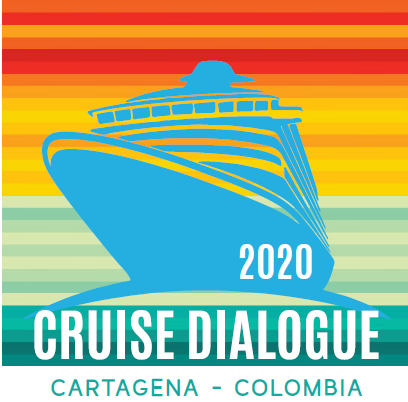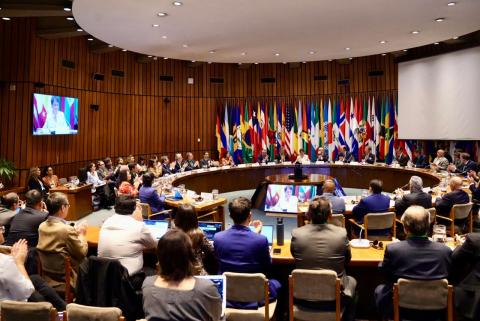Speech
Cartagena Dialogue on Cruise, Port and Cities 2020
Under the Conference Cartagena dialogue on “Cruise, Ports and Cities” , ECLAC the 20 Febrary of 20200, will organize the Special Session 2: Main challenges for cruise industry in the Caribbean.
The aim of this session is discuss the Role of Caribbean cruise industry as a trigger of sustainable economic development.
Between 2010 and 2018 that number of cruise passengers in the Caribbean increased from 6.2 to 11.3 million. The average annual growth rate of 7.8% over 9 years is impressive. However, these figures not only reveal the importance of the Caribbean for the cruise industry, but also refer to the importance of cruise ships and tourism for the development of the Caribbean.
Main drivers of this development are the touristic attractiveness, the multiplicity of destinations within the Caribbean basin, the specific characteristics of each destination (reaching from natural sights to security), infrastructure endowment and, particularly, the port facilities. Economic impacts of the cruise industry originate from the direct, indirect and induced contributions to economic development. Such contributions include visitor expenditures, investments (e.g. port facilities), intermediary purchases and related industries, such as entertainment, expedition and tourist attractions, with clear effects on GDP and employment.
Beyond these significant and positive effects of the cruise industry, great challenges for the future of cruises in the Caribbean basin have been emerging: such as the environmental impact in port regions (e.g. emissions, underwater noise) and the growing demand has led to capacity issues in ports, port areas and tourist attractions.
Finding the right balance between positive and negative effects of the cruise industry and tourism defines the main challenge for the Caribbean region on its path towards a sustainable economic development.
Accordingly, the expert panel will address some of the most relevant questions:
- How are the benefits of the cruise activity distributed between the industry and local economies / communities?
- How can cruise tourism and economic benefits for the Caribbean grow hand in hand and at the same reduce and mitigate possible adverse social, economic and environmental effects?
- What are the current limitations of infrastructure and port facilities What effects will the arrival of more and potentially bigger cruises have on port infrastructure and other commercial port activities?
- What measures are being taken or should be taken to protect and preserve nature, biodiversity and cultural heritage? What are the roles of industry and ports in this regard?


